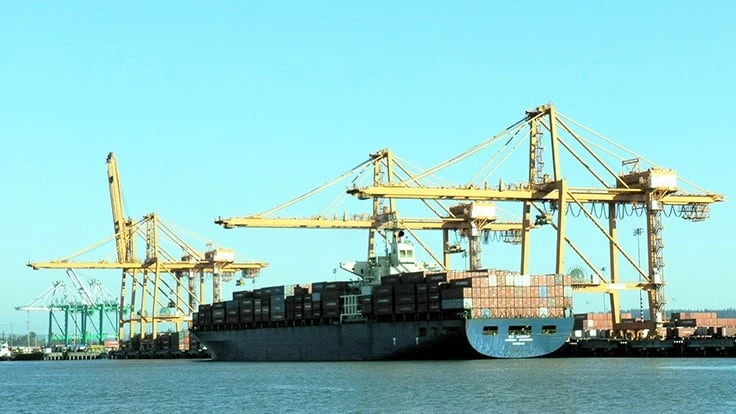
© Paige Foster - Dreamstime.com
As per a requirement of Indonesia’s scrap import regulations that were finalized in late 2019, the Indonesian government has developed a process for exporters to register with the Indonesian Embassy and Consulates, according to a news release from Institute of Scrap Recycling Industries (ISRI), Washington.
Adina Renee Adler, vice president of advocacy at ISRI, says the new registration process applies for exporters of all scrap commodities.
“The Indonesian government wants to understand better who is sending them materials,” she says.
Exporters of any and all scrap commodities to customers in Indonesia may apply for this registration.
Adler says the new registration process applies to exporters in any country, not just the U.S. She notes that this process is somewhat unique, but it’s similar to licensing processes in China. She says Indonesia’s new registration procedures for exporters are“not as onerous” as processes with China.
Based on an email sent to ISRI by Indonesian government officials, the following documents are required for the registration process for exporters in the U.S.:
- an authenticated Certificate of Good Standing from the Secretary of State office where the U.S. company is registered;
- a notarized letter of statement;
- a signed application form;
- a company profile; and
- articles of association or certificate of incorporation.
In addition, companies based in the U.S. wishing to export commodities to Indonesia must complete the following steps to become registered exporters:
- obtain the certificate of good standing and have it authorized by the Secretary of State;
- produce the letter of statement and have it notarized by a public notary;
- fill in and sign the application form;
- email soft copies of Doc 1-5 to commercial-attache@embassyofindonesia.org; and
- mail original documents of Doc 1-3 to one of Indonesia’s offices in the U.S., such as the Embassy in Washington or the Consulate General in New York, Chicago, Houston, San Francisco or Los Angeles.
Companies applying for registration also must provide a money order of $125 and a return envelope and prepaid airway bill with a tracking number. Indonesian government officials told ISRI it takes about five business days to assess and process registration once completed documents are received, and there could be additional delays in processing registration due to COVID-19.
While this new rule applies to exporters in all countries, these guidelines are just for the U.S. Exporters in other countries need to check with the Indonesian Embassy in their home countries for information on how to register.
In late 2019, the Indonesian government had to implement procedures to register exporters by July 1. With that date less than two weeks away, Adler says ISRI had appealed for a grace period with the registration process.
According to an update from ISRI June 24, the government of Indonesia has agreed to ISRI’s request to implement a grace period for the new registration requirement. Exporters will have until Oct. 1 to comply. However, ISRI says exporters are encouraged to begin the registration process as early as possible. Shipments arriving into Indonesia before Oct. 1 can be released as long as it has been inspected prior to shipment and the importer is licensed. For shipments arriving beginning Oct. 1, the importer will need a revised license that includes proof of the exporter's registration.
Adler says the Indonesian government did not indicate whether scrap companies only need to apply once to be registered or if registration is a recurring procedure.
Scrap companies can reach out to the Indonesian Embassy with questions.
Latest from Recycling Today
- China to introduce steel export quotas
- Thyssenkrupp idles capacity in Europe
- Phoenix Technologies closes Ohio rPET facility
- EPA selects 2 governments in Pennsylvania to receive recycling, waste grants
- NWRA Florida Chapter announces 2025 Legislative Champion Awards
- Goldman Sachs Research: Copper prices to decline in 2026
- Tomra opens London RVM showroom
- Ball Corp. makes European investment





